“Bee at Peace”: Women of Color Journey Toward Peace, Stillness, and Connection
BY KELLY SWAN | September 24, 2021
In 2018, Debra Ann Hardy took her last breath on earth. Debra was a strong woman of deep faith whose mental health was deeply impacted by the reality of what Black women and other women of color carry.
In the aftermath of her loss, Debra’s daughter, Lauren Morton, with her sister, began to ask a critical question: “what is the message in the mess?”
Prior to this time, Lauren’s path had brought her to Ignatian spirituality through her work at Cristo Rey Atlanta and a desire to go deeper in her spiritual journey and seek answers to big questions. She found gifts she needed in the simplicity of “finding God in all things” and discernment—key parts of Ignatian spirituality. Debra had been intrigued by this way of looking at spirituality, particularly silent retreats.
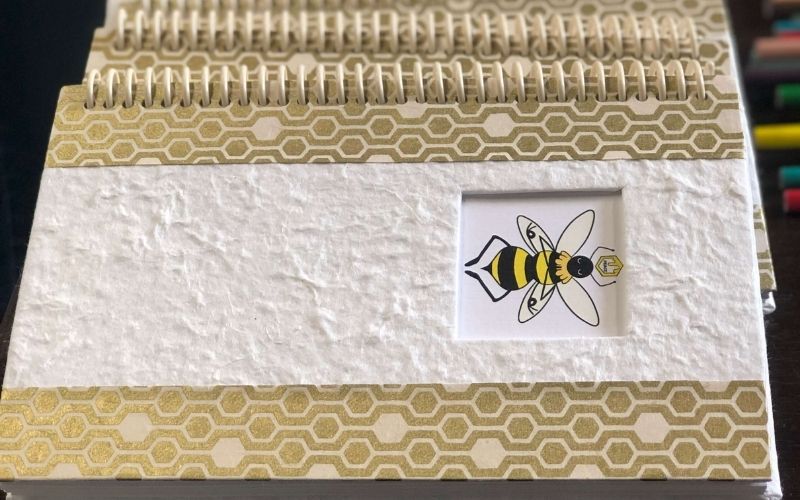
Lauren knew that in communities of color, when it comes to matters of mental health, women are often told to “just pray about it.” She also believed that her mother, and the matriarchs of many other families, would find more fulfillment in life if they were supported spiritually and were given space to share their feelings. The recent documentary, ‘In Our Mothers’ Gardens,’ inspired by Alice Walker, illustrates this reality—that Black women are superheroes…and they are drowning. Black women’s health status is worse than during the time of enslavement, with dramatic disparities in maternal and fetal health, economic insecurity, pay disparity, higher rates of stroke and heart attack, and more, in spite of being one of the most educated demographic groups in the U.S.
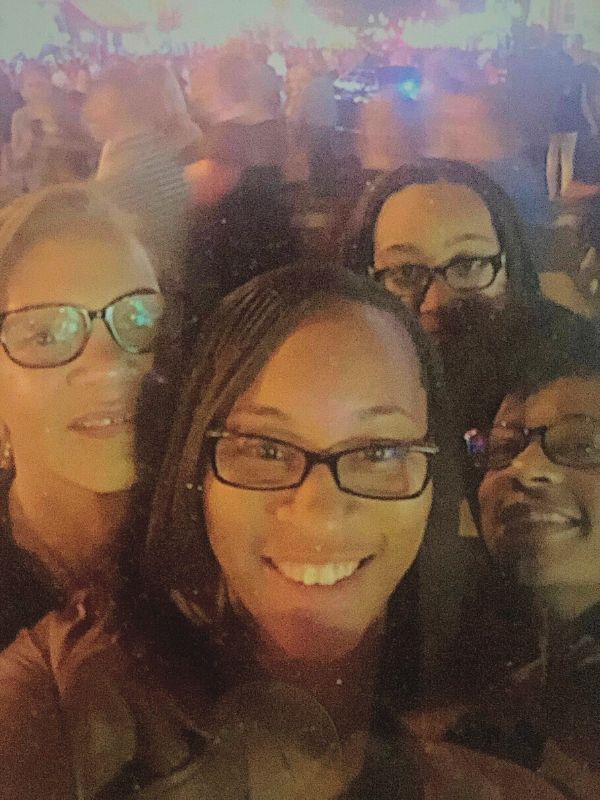
Debra and her daughters at an Adele concert—a Christmas gift the year before she died. “The world was buzzing by and our time stood still,” said Morton.
Lauren also knew that spiritual direction was often a back door for Black women and girls to warm up to the idea of therapy. In light of this reality, Lauren and her sister established a memorial fund in their mother’s honor at Ignatius House Jesuit Retreat Center in Atlanta, GA, to support women of color interested in attending silent retreats and seeking spiritual direction.
From this memorial fund, a broader idea began to grow—a way for women of color to more fully find and offer mutual support and community. From this idea sprang “Bee at Peace”—an initiative designed to make Ignatian spirituality more accessible to women of color, and in the process, build mutual support and community.
The initiative was named for Debra, which means “bee” in Hebrew. The imagery of the bee is synonymous with community, power, and strength. Like the bee, Black women are both admired and feared—seen as both superhero and angry. The title itself speaks to the lived experiences of women of color, as experienced by Debra in her life.
The initiative has a number of complementary aims. Retreats and programming provide an introduction to prayerful silence or silent retreats, acknowledging, as a friend of Lauren’s shared, that Black women are “really good at the fellowship,” but often truly need to find silence to let God speak—to be able to find peace and prayerful silence simply in their own homes and daily lives.
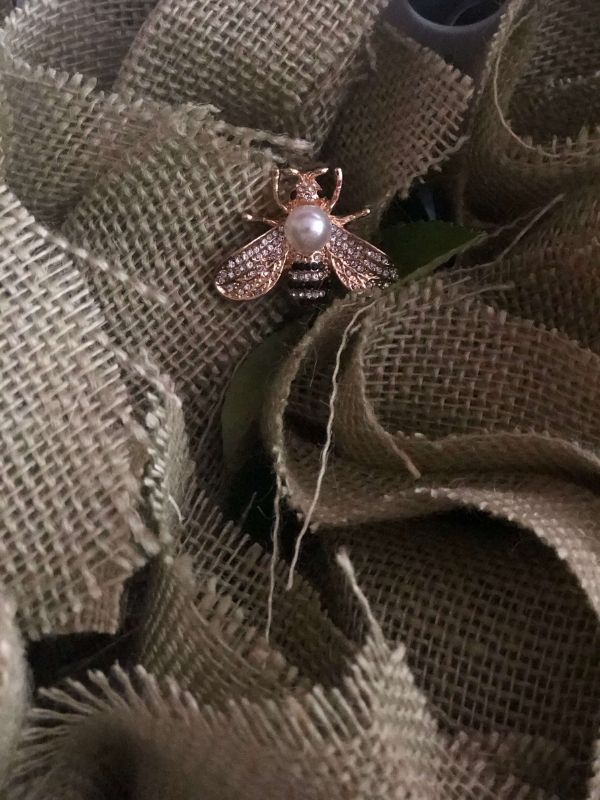
Bee resting on handcrafted iwi fresh body scrubs for retreat participants.
During the pandemic, Lauren completed the 19th Annotation of the Spiritual Exercises of St. Ignatius of Loyola. The experience was transformative for her. She shared that she “felt fully embraced by God,” compelled to ask “which Lauren do you love? Which Jesus do you love? The saving, or the ridiculed and othered?” She found ample parallels between Jesus’ journey and her own.
The initiative aims to provide this same experience to women of color who are interested in the potential of becoming spiritual directors in the future through opportunities tailored to their needs. “St. Ignatius wrote the spiritual exercises for many faith traditions—anyone who is a seeker can find their entry point,” Lauren shared. In this light, she has developed a list of current cultural resources, including songs, video, and written word to correspond with the themes in the Spiritual Exercises that speak to her and others as women of color.
Bee at Peace also aims to provide innovative practicum sites to women of color training to become spiritual directors. “Spiritual direction doesn’t have to look like what we typically think it has to,” shared Lauren. “ We gather in beauty shops, community centers, and at justice organizations—we can do the transformative work of placing spiritual direction in these places, making it more accessible to everyone, providing an invitation to greater love and companionship.”
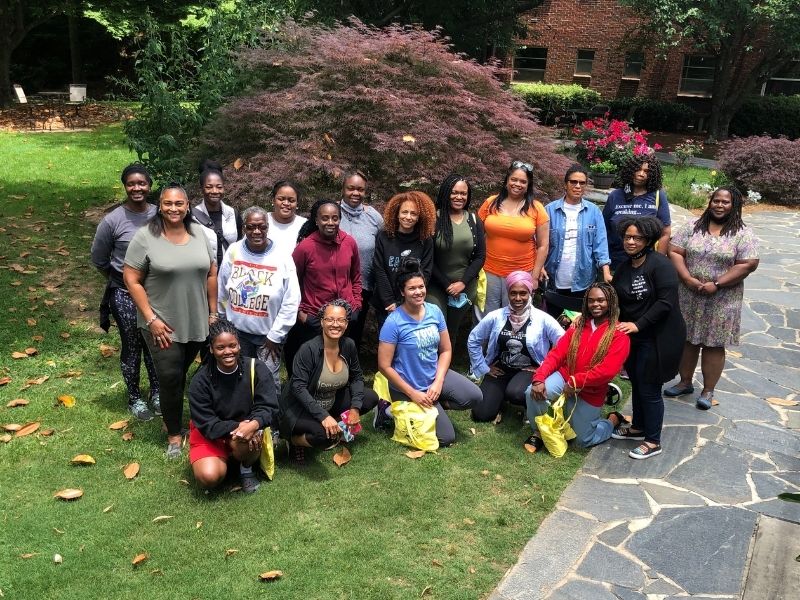
Bee at Peace Retreat: May 2021 at Ignatius House Jesuit Retreat Center.
Lauren speaks about this work as leading toward collective salvation and liberation. “How do I see God in my brothers and sisters from all walks of life and faith traditions?” is a key question in this work. “I can take a bit from that,” shares Lauren, “and it informs my own spiritual journey, giving me greater freedom to make my own spiritual steps. Black women pull from many traditions and this grounds me and others in my spiritual journey.”
In November of 2020, the first Bee at Peace silent retreat was hosted in Atlanta, with every spot full. Lauren shared plans for future retreats, and a long-term vision to grow and expand to meet the needs of Latinx and AAPI women. “This is not my lived experience,” Lauren shared, “but when a person with a Latinx or AAPI story comes to the table, they’ll grow that space.”
Bee at Peace is guided by a board of director and advisors of multiple lived experiences, including a forensic psychologist with a career in the prison system and a deep interest in women, mental health, incarceration, and faith, who is helping to bridge the gap between faith and mental health as a therapist and woman of color.
“The beauty of Bee At Peace is that it recognizes the humanity and complexities of womanhood,” shared Dedra W., a retreat attendee. “They’ve created a safe space for all women to pursue their health, wholeness, and healing within community.”
Learn how you can get involved or support the work of Bee at Peace. You can also follow Bee at Peace on Instagram at @bee_at_peace.
Kelly Swan has worked for the Ignatian Solidarity Network since 2016, first as communications director, and now as director of advancement. She grew up in West Virginia and is a graduate of Wheeling Jesuit University. Kelly has worked in parish social ministry, child and family advocacy, community education and organizing, and publishing. She lives in the Cleveland, Ohio area with her children.

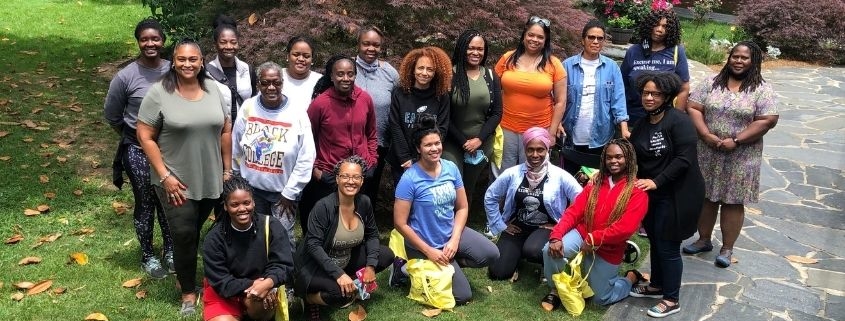







‘Bee at Peace’ is a meaningful initiative.
To tell the truth, I admire such people as Debra and Lauren who contributed to the world and its changing in such a global way. I’m certain that Debra Ann Hardy made her global mark on the world and her memory will be eternal. Without any doubts, there should be more such invaluable organizations as “Bee at Peace” in our world because it provides a huge necessary support to black women and makes them feel free in the expression of their own internal feelings. Unfortunately, black women faced a lot of difficulties and injustice connected with their race and skin color which they had to weather with and it is so cool that now they can find healing with the aid of “Bee at Peace”, feeling this connection with God. it is so important that such women unite, feeling peace and safe.